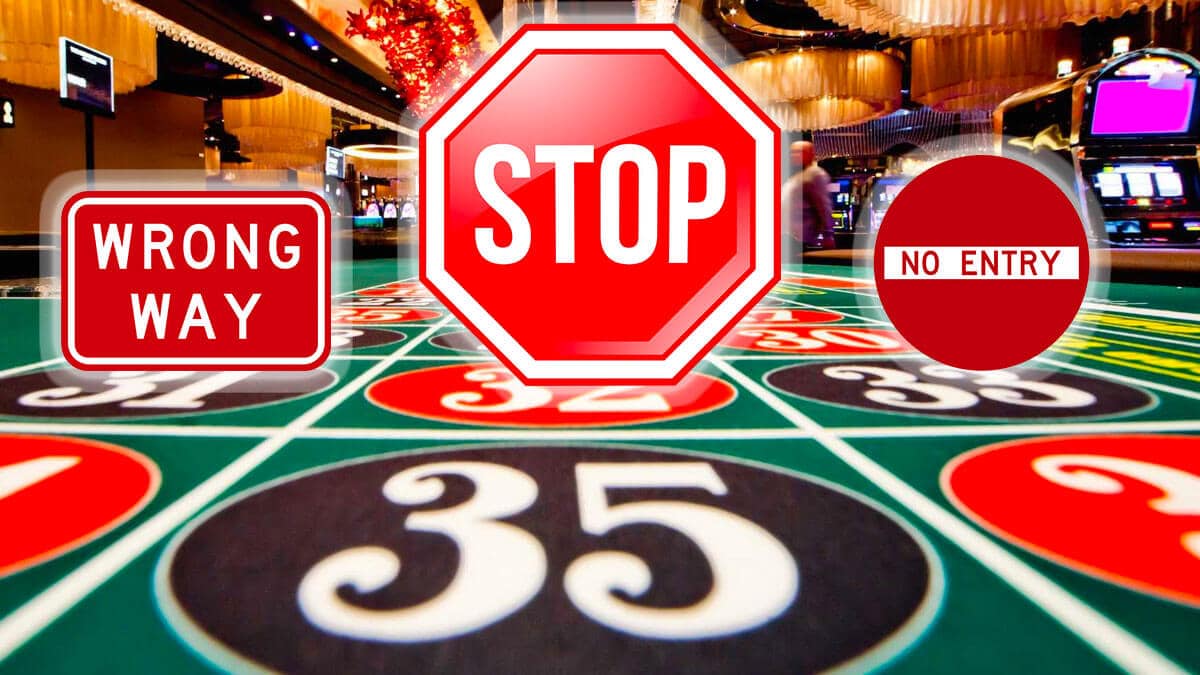Problematic gambling should never be seen as a taboo subject by the industry. Nor is gambling addiction something players should be afraid to discuss openly. In fact, the key to safe and sensible gambling lies in encouraging open discourse and keeping the conversation going.
It’s no secret that each year sees thousands more people seeking assistance for problematic gambling. In its own right, gambling is no more addictive than any other ‘pay for pleasure’ activity. It’s just that the comprehensive accessibility of gambling opportunities in the UK makes it a particularly prevalent issue.
Absolutely anyone wishing to do so can gamble at any time with any amount of money, with no specific restrictions. The UK has one of the most liberal gambling policies in the world, which applies to both traditional betting and online casino gaming.
Consequently, a small proportion of those who get into the whole thing eventually find themselves out of their depth. They fall into debt, their relationships take a hit and they end up in a highly undesirable situation.
This is where self-exclusion can help – a facility designed to prevent major issues from happening in the first place. Rather than waiting until things hit crisis point, self-exclusion provides players would opportunity to nip developing problems in the bud.
What is Self-Exclusion?
The vast majority of online and offline casinos now operate some kind of self-exclusion programs. Where available, self-exclusion provides the customer with the opportunity to temporarily restrict their own access to the premises and/or the games on offer.
Put simply, upon activating self-exclusion, your account is put on hold for the allocated amount of time. It could be anything from a couple of weeks to several months, with the option of permanent exclusion available if necessary.
During this time, there is nothing the player in question can do to reactivate their account and gamble at the casino in question. The idea being that it provides the player with the time they need to get themselves together and reconsider their approach to gambling.
Of course, self-exclusion doesn’t prevent the individual in question from gambling at any other casino or bookmaker. It may therefore be necessary to enter into several different self-exclusion programs, if the player has multiple accounts with various service providers.
Do I Have to be a Gambling Addict to Benefit from Self-Exclusion?
Not at all, in fact the whole point of self-exclusion is to prevent major problems with addiction from occurring in the first place. Self-exclusion is open to anybody looking to take proactive and positive steps to bring their gambling activities under control.
For example, it could simply be that over the course of the past couple of months, you’ve inadvertently wagered and lost way more than you intended to. Subsequently, you could opt for a period of self-exclusion, simply to remove the temptation to gamble for the next few weeks.
Likewise, it could be that you completely lost control of your senses during a recent outing and spent a small fortune in one night. You don’t want to make the same mistake again (particularly after a few drinks), so you self-exclude to keep yourself out of harm’s way.
Under no circumstances should self-exclusion be viewed as something that is only for the most problematic gamblers. Used at the right time, it can be an extremely useful and versatile facility for preventing problems from manifesting in the first place.
Can I Volunteer Someone Else for Self-Exclusion?
Technically speaking, the answer is no – self-exclusion is something that must be entered into voluntarily. That this doesn’t mean that you cannot at least make a casino (online or otherwise) aware of what you believe to be the signs and symptoms of problematic behaviour.
On the grounds of data protection laws, casinos are forbidden from discussing the accounts or activities of any of their players with anyone else. This includes friends and family members, even if you’re concerned about their activities.
But what you can do is contact the casino to voice your concerns and suggest that the account activity of the individual in question is checked out. Casinos have a legal obligation to monitor for signs of problematic behaviour and take action where they are detected.
You can’t volunteer someone for exclusion, but you can certainly bring your concerns to the attention of the casino and allow them to take the action they deem appropriate.
How is Self-Exclusion Enforced?
The way self-exclusion is enforced will be detailed in a casino’s published terms, conditions and general user agreement. There are no specific standards in place with regard to how self-exclusion should be enforced, so you can expect policies to vary significantly from one casino to the next.
In most instances, it’s simply a case of the player’s account at the casino being temporarily frozen. During this time, they are shut out from their account entirely, and therefore cannot gamble at the casino under any circumstances.
There’s also no allowance for setting up a new account, or playing via someone else’s account. Both of which are prohibited and could lead to permanent exclusion.
What is the Average Duration for Self-Exclusion?
Last up, there is no average self-exclusion duration for the simple reason that different people use the facility for different reasons.
For some, it may simply be a case of taking a few weeks away to limit temptation. For others, self-exclusion for several months or even years may be necessary – there’s also the possibility of indefinite self-exclusion.
Understandably, self-exclusion is only effective when it prohibits the player entirely from accessing their account. Unfortunately, there are some casinos that offer the option of ending self-exclusion early, upon formal written request from the player.
Something that goes against the whole point of self-exclusion entirely – why bother if you can still gain access to your account on demand?
Entering into self-exclusion needs to be something that cannot be reversed until the time is right. If you think you need a few weeks or months to get your head together, you should not even think about gambling in the meantime.
You might also find the following articles interesting:
- 10 Top Tips for Winning Big with Small Stakes
- 7 Tips How to Keep Your Personal Information Safe while Gambling Online
- 10 Ways to Make Money While Gambling













